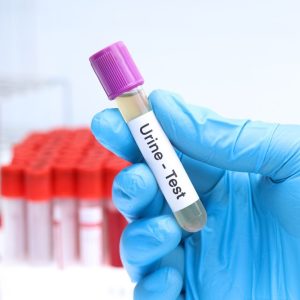
Accurate Immunoglobulin G (IgG) Test – Fast & Reliable Antibody Detection
150,00 د.إ
Always battling colds, infections, or ‘mystery illnesses’? Low IgG levels could be the culprit. This simple blood test reveals if your immune system is asleep on the job.
Sample Type : Serum
Methodology : Immunoturbidometry
TAT : 2 Days
Description
Immunoglobulin G (IgG) Test – Tired of Wondering Why You’re Always the First to Get Sick? This Isn’t About Luck—It’s About Science
Tired of being the first to catch every cold, the last to recover, or constantly battling infections?
It’s not bad luck. It could be low IgG—your immune system’s main defense weapon is running low.
The Immunoglobulin G (IgG) Test from Lab Tests Dubai is a critical blood test that measures the level of IgG antibodies—the most abundant and long-lasting antibodies in your bloodstream.
IgG is your body’s immune memory—protecting you from:
- Recurrent sinus, lung, or ear infections
- Chronic fatigue and weakness
- Slow healing and frequent illness
This test is essential for:
- Diagnosing primary immunodeficiency disorders (e.g., CVID)
- Evaluating recurrent infections in adults and children
- Monitoring chronic illnesses (e.g., HIV, multiple myeloma)
- Assessing post-COVID or post-illness immune recovery
- Supporting autoimmune disease evaluation (e.g., SLE, rheumatoid arthritis)
Using high-precision immunoturbidometry, this serum-based test delivers accurate results within just 2 days, helping immunologists and family doctors diagnose hidden immune weakness.
Available with home blood collection, Lab Tests Dubai ensures fast, accurate, and stress-free testing—so you can finally understand why you’re always sick.
Why You Need This Test
If you’re constantly catching infections, taking weeks to recover, or feeling chronically weak, this test could reveal a hidden immune deficiency.
You need the IgG Test if:
- You get 4+ sinus infections, bronchitis, or pneumonia per year
- You suffer from chronic ear infections or tonsillitis
- You’re slow to recover from colds or flu
- You have unexplained fatigue, weakness, or brain fog
- You’ve had repeated antibiotic courses
- You’re being evaluated for CVID, X-linked agammaglobulinemia, or other immune disorders
- You’re post-COVID or post-illness and feel “never the same”
This test helps:
- Diagnose antibody deficiency (e.g., Common Variable Immunodeficiency)
- Rule out immune causes of chronic illness
- Guide treatment with immunoglobulin replacement (IVIG/SCIG)
- Improve quality of life and reduce infections
Early detection = stronger immunity and fewer sick days.
Symptoms That Indicate This Test
Consider the IgG Test if you experience:
✅ For Recurrent Infections:
- Frequent sinusitis, bronchitis, or pneumonia
- Recurrent ear infections (otitis media)
- Chronic bronchitis or bronchiectasis
- Need for repeated antibiotics
✅ For Immune Deficiency:
- Chronic fatigue or low energy
- Poor wound healing
- Swollen lymph nodes or spleen
- Family history of immune disorders
✅ For Autoimmune or Chronic Conditions:
- Lupus (SLE), rheumatoid arthritis, or celiac disease
- Multiple myeloma or lymphoma (can cause low IgG)
- HIV or chronic viral infections
These signs may point to impaired antibody production—and this test helps diagnose the root cause.
Natural Production: How IgG Protects Your Body
Immunoglobulin G (IgG) is produced by plasma cells (mature B cells) and is the most abundant antibody in blood and tissues.
It plays a vital role in:
- Neutralizing bacteria, viruses, and toxins
- Opsonization (tagging pathogens for destruction)
- Activating complement system
- Providing long-term immunity after infection or vaccination
Normal IgG Levels (Adults):
- 700 – 1,600 mg/dL (lab-dependent)
Low IgG May Indicate:
- Primary immunodeficiency (e.g., CVID, XLA)
- Protein-losing conditions (nephrotic syndrome, protein-losing enteropathy)
- Medications (chemotherapy, immunosuppressants)
- Chronic lymphocytic leukemia (CLL)
High IgG May Indicate:
- Chronic infections (HIV, hepatitis, TB)
- Autoimmune diseases (SLE, RA)
- Liver disease (cirrhosis)
- Monoclonal gammopathy (e.g., multiple myeloma)
This test measures total IgG—a key marker of humoral immunity.
What Happens If Untreated? Risks of Ignoring Low IgG
Ignoring low IgG can lead to:
⚠️ Recurrent, Severe Infections – pneumonia, sepsis
⚠️ Chronic Lung Damage – bronchiectasis, fibrosis
⚠️ Hospitalizations & Antibiotic Overuse
⚠️ Missed Work or School – due to constant illness
⚠️ Organ Damage – from untreated autoimmune or chronic disease
The good news? Immune deficiency is treatable with:
- Immunoglobulin replacement therapy (IVIG or SCIG)
- Prophylactic antibiotics
- Vaccination support
- Lifestyle and nutritional optimization
Early testing = fewer infections and stronger immunity.
How to Prepare for the Test
To ensure accurate results:
✅ No fasting required
✅ Continue your regular medications—but inform your doctor
✅ Inform your doctor of:
- Recent infections or vaccinations
- History of immune or autoimmune disease
- Use of immunosuppressants or chemotherapy
A serum blood sample is collected via standard draw—available at our labs or via home collection.
Test Overview: Immunoturbidometry Method
Interpretation:
- <700 mg/dL (adults) → Low (suggests deficiency)
- 700–1,600 mg/dL → Normal
- >1,600 mg/dL → High (evaluate for chronic infection, autoimmunity, or myeloma)
Note: Often paired with IgA, IgM, and specific antibody responses (e.g., post-vaccine titers).
Benefits of the IgG Blood Test
🔹 Diagnose Immune Deficiency
Identify CVID and other antibody disorders.
🔹 Reduce Infections
Start IVIG or preventive care early.
🔹 Monitor Chronic Conditions
Track immune status in HIV, myeloma, or autoimmune disease.
🔹 Post-Illness Recovery Check
Assess immune recovery after severe infections (e.g., COVID-19).
🔹 Peace of Mind
Know your immune system is strong—or get help if it’s not.
If you’re tired of always being sick, slow to heal, or exhausted, the Immunoglobulin G (IgG) Test gives you the answers you need in just 2 days.






Reviews
There are no reviews yet.